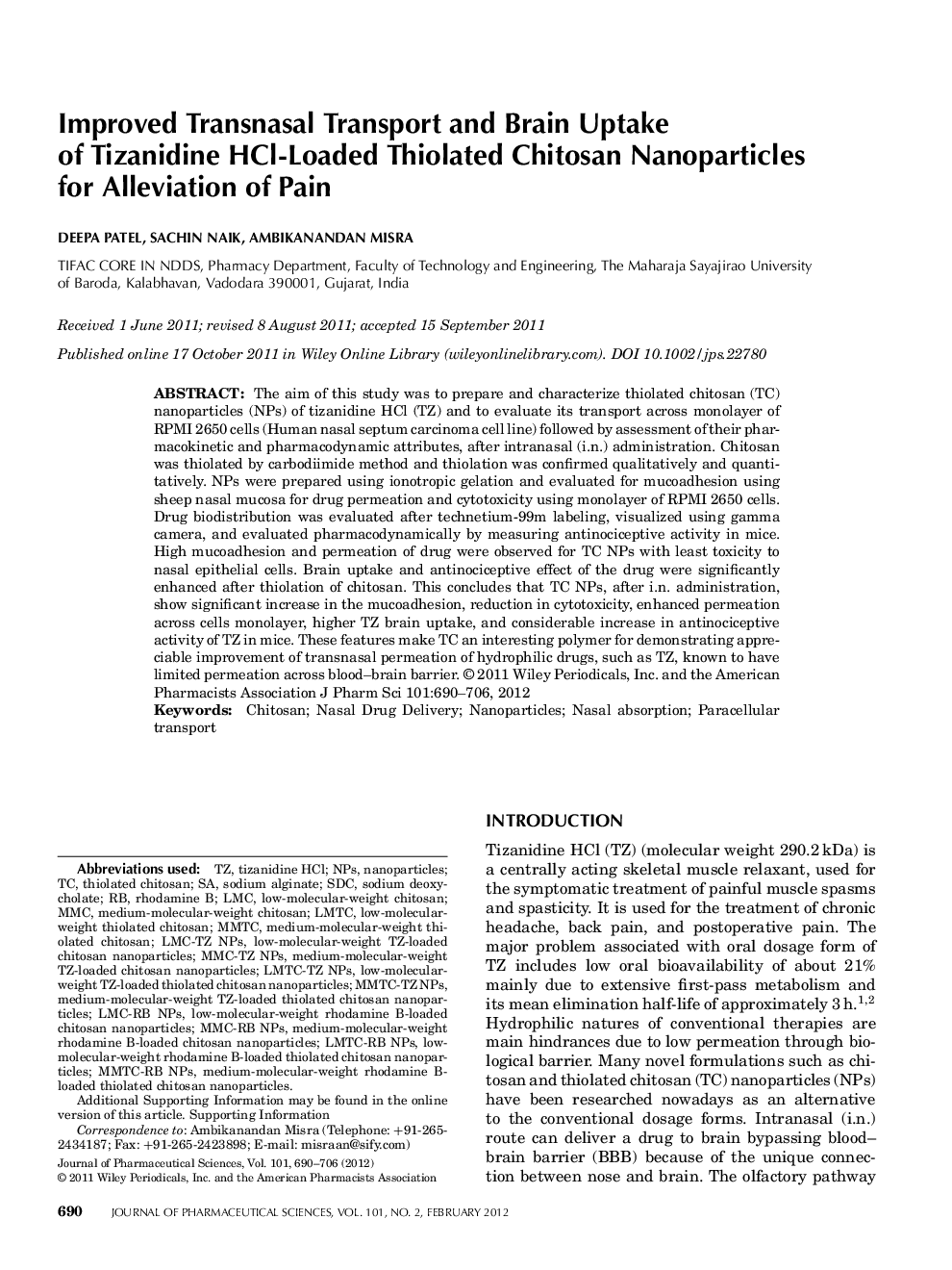| Article ID | Journal | Published Year | Pages | File Type |
|---|---|---|---|---|
| 2485248 | Journal of Pharmaceutical Sciences | 2012 | 17 Pages |
Abstract
The aim of this study was to prepare and characterize thiolated chitosan (TC) nanoparticles (NPs) of tizanidine HCl (TZ) and to evaluate its transport across monolayer of RPMI 2650 cells (Human nasal septum carcinoma cell line) followed by assessment of their pharmacokinetic and pharmacodynamic attributes, after intranasal (i.n.) administration. Chitosan was thiolated by carbodiimide method and thiolation was confirmed qualitatively and quantitatively. NPs were prepared using ionotropic gelation and evaluated for mucoadhesion using sheep nasal mucosa for drug permeation and cytotoxicity using monolayer of RPMI 2650 cells. Drug biodistribution was evaluated after technetium-99m labeling, visualized using gamma camera, and evaluated pharmacodynamically by measuring antinociceptive activity in mice. High mucoadhesion and permeation of drug were observed for TC NPs with least toxicity to nasal epithelial cells. Brain uptake and antinociceptive effect of the drug were significantly enhanced after thiolation of chitosan. This concludes that TC NPs, after i.n. administration, show significant increase in the mucoadhesion, reduction in cytotoxicity, enhanced permeation across cells monolayer, higher TZ brain uptake, and considerable increase in antinociceptive activity of TZ in mice. These features make TC an interesting polymer for demonstrating appreciable improvement of transnasal permeation of hydrophilic drugs, such as TZ, known to have limited permeation across blood-brain barrier. © 2011 Wiley Periodicals, Inc. and the American Pharmacists Association.
Related Topics
Health Sciences
Pharmacology, Toxicology and Pharmaceutical Science
Drug Discovery
Authors
Deepa Patel, Sachin Naik, Ambikanandan Misra,
